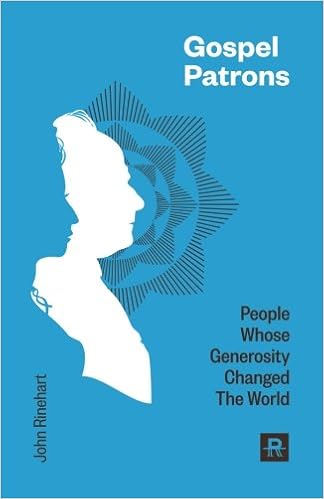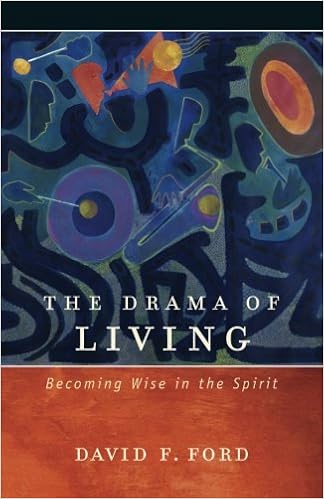From my forthcoming book, God, What on Earth are You Doing?
How Should We Live in this World?
As mentioned earlier, a proper understanding of trusting God through suffering does not preclude enjoying the good things of God. We can and we should. Since God does not need us, our celebrations, our hobbies like golf or woodwork, and our love of travel, can be tangible demonstrations of trusting in God’s grace. Unfortunately, these good things can also become unhealthy diversions that keep us thinking about the most important issues of life. Even gifts from our gracious God can lead us astray. We must guard against “perishing inch by inch in play at little games.”
We live in a world with easy access (thanks to media) to the never ending news of injustice, suffering, and evil. How do we process this avalanche of sadness without going mad? Years ago, I heard theologian David Wells say that only God is able to handle all the suffering and evil in the world. We were not designed for the constant bombardment of bad news, so it would be wise to consider how much we ingest on a daily basis.
Perhaps we should take the popular option of doing what Voltaire prescribed many years ago: simply hunker down and only “tend our own gardens.” Tending to our own affairs does seem to be a good way to maintain some semblance of sanity.
Recently, I preached in various churches from the book of Lamentations. Towards the end of my sermon preparation I spent some time reflecting on the common responses people have to suffering. I’m sure there are others, but I came up with three “D words”: detachment, diversion, and depression. My wife later added desensitized which could easily fit as a characteristic of those who detach.
The idea of “detachment” from pain is gaining popularity in everything from business books to popular books on spirituality.[1] Diversion is also something we’ve already addressed. Again, diversions in and of themselves can be welcome respites from the constant onslaught of grief, but it is unhealthy to never face your struggles. The response of depression is something many of us can identify with. We look at our broken world in all its chaotic mess and we despair. Another “D” came to my mind later with diminish, where we downplay how bad things are. I think those as well could be plugged under the detachment option.
Jesus provides us the perfect example of how to handle the devastation that comes from acute suffering.[2] In the Garden of Gethsemane, Jesus’s “soul was deeply grieved, to the point of death.” (Matt. 26:38) Jesus was deeply troubled, yet willing to submit to the Father’s will. If it is okay for the Son of God to be so troubled, we too are given much space to cry out to our God. Being baffled by what God is up to and yet still trusting Him can coexist. In fact, these are signs of spiritual health. Lament underscores that we are not at peace with the brokenness of our world, but we can still experience “the peace that transcends human understanding.” (Phil. 4:7; J.B. Phillips New Testament) What good is peace anyways if we only experience it when circumstances are to our liking?
The glorious news is that the ultimate lament of all time was given by Jesus on the cross. I like to say that because Jesus gave the only upper case L, lament, we now can “lament with hope.” Our laments can come from deep within. These visceral cries are not just allowed by our great and gracious God. They were modeled by Him!
It may feel like our world is crumbling before us, but the worst possible lament was already offered by Jesus. His lament on our behalf gives us confidence that our weeping will not last forever. The older I get I find myself offering two laments on a regular basis: “God, you know how difficult it is to live in this world, right?” and “Please come back soon and make things right!” I’m comforted by the fact that I have the full freedom to offer these prayers of lament to God.
Tragically, the cynic’s posture is one many take. It is important to realize that all cynics share a common, but terribly misguided belief: they think they are omniscient. This may sound very strange to you. How in the world does a cynic think he is all knowing? Let me explain. A cynic has determined that he knows everything, and concluded that all indeed is bleak. Nothing or no one seems to be able to change his gloomy assessment. Here is where theology gets practical. Only God is all-knowing. He is the only one who is fully aware of all the pain and suffering that goes on in our world. As we saw, God’s Son gave the ultimate lament for sin. Sin is the reason for all the grief in our world. The irony is that things are actually worse in one sense than the cynic can appreciate for cynics rarely consider their own sin. Fortunately, this is not the end of the story. The cynic has missed a massive truth: God is the author of hope. Biblical hope does not mean our life will be smooth sailing. This is clear from our study of Habakkuk. We can find rest, however, in the hope-filled promise that the “sufferings of this present time are not worthy to be compared with the glory that will be revealed to us.” (Rom. 8:18) Lest you are tempted into a cynic’s mode by saying these words are unrealistic, keep in mind who penned them. The apostle Paul experienced great suffering. He was no mere theoretician when it comes to pain.
Christians can stare honestly at the brokenness of the world, their world (!), yet be steadied by a God who offers real comfort in Jesus. My prayer is that this study brings greater wisdom, joy, and confidence in the only One who is worthy of our trust. May we be like Habakkuk who learned that nothing or no one can take away “the God of his salvation.”
[1] See for example, Ryan Holiday and Stephen Hanselman, The Daily Stoic: 366 Mediations on Wisdom, Perseverance, and the Art of Living (New York, NY: Random House, 2016) and various writings of the popular writer on spirituality, Anthony de Mello. A profound book demonstrating the impossibility of mixing Stoicism and Christianity is C. Kavin Rowe, One True Life: the Stoics and Early Christians as Rival Traditions (New Haven, CT: Yale University Press, 2016).
[2] For the suffering of Jesus, I am grateful for a conversation I had with our son, David.



